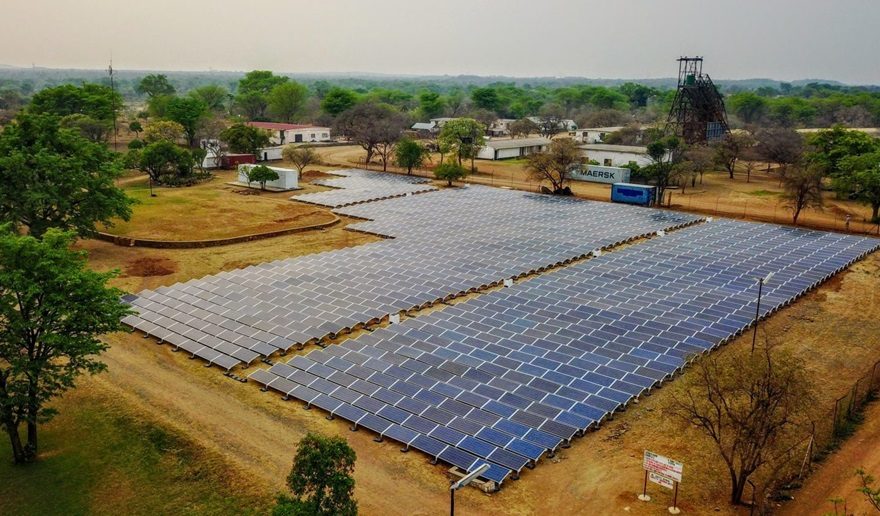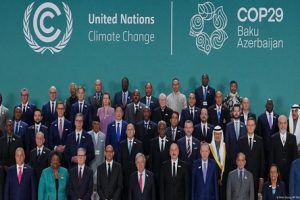
Ethiopia is on the cusp of an energy revolution. Long reliant on traditional sources, the country is now embracing the transformative power of renewable energy, ushering in a new era of sustainable development.
Blessed with an abundance of untapped renewable resources, Ethiopia is poised to harness the immense potential of solar, wind, and hydropower. The country’s strategic location near the equator grants it access to ample sunshine, while its diverse terrain offers prime conditions for wind farms and sprawling hydroelectric projects. This wealth of natural assets has not gone unnoticed, as the Ethiopian government has made renewable energy a national priority, investing heavily in infrastructure and incentivizing private sector engagement.
According to the reports, Ethiopia’s hydropower resources are particularly notable, with an estimated potential of over 45,000 MW, of which only around 5% has been developed so far. Major hydroelectric projects like the Grand Ethiopian Renaissance Dam are harnessing this vast hydropower capacity. The country also has significant geothermal energy potential, estimated at 10,000 MW, with plans to develop this resource to generate electricity and provide direct heat. Meanwhile, solar and wind power are increasingly being deployed, with the government setting targets to install over 7,000 MW of solar and 5,000 MW of wind by 2030.
The benefits of this shift are manifold. By reducing the nation’s carbon footprint and lessening its dependence on fossil fuels, Ethiopia is charting a course toward energy independence and environmental stewardship. Moreover, the renewable energy sector has emerged as a robust job creator, empowering local communities and fostering economic growth. As the country continues to make strides in this arena, the ramifications will be felt far beyond its borders, serving as a shining example of how developing nations can leapfrog traditional energy models in pursuit of a greener, more resilient future.
The Executive Energy Advisor of the Minister at the Ministry of Water and Energy, Gosaye Mengste, stated that it provided an update on the country’s renewable energy initiatives. This push towards sustainable energy is being driven by the government’s focus on promoting projects that improve the social and economic development of communities across the country, he stated.
Ethiopia is making significant strides in expanding its renewable energy capacity, with plans to increase the number of projects from 11 to over 200 in the coming years, he said. Ethiopian Electricity Service, along with its stakeholders, is making concerted efforts to expand electricity access across the country. As part of this initiative, they are working on more than 200 rural towns that are located far from the main grid, he noted.
To enable these remote communities to benefit from electricity, the institute has designed and implemented 25 solar mini-grid projects. These mini-grid systems will provide electricity to the rural towns that are not connected to the main power grid, he mentioned.
According to the Ethiopian Electricity Utility (EEU) data shows that the national electrification program aims to achieve 65% grid-connected electricity users and 35% alternative energy users. The program, collaboration between the institution and private organizations, is working to bring electricity to over 200 remote rural towns.
The total budget for this project is 400 million USD, with the primary objective of providing economic benefits and improving the living conditions of people residing in areas distant from the main grid, based on the EEU reports.
The EEU Reports mentioned that once implemented, the project will facilitate knowledge transfer and create widespread employment opportunities. Additionally, it will connect 145,169 new customers to the electricity network. The project entails the construction of 8 MW of total generating capacity, 68.7 km of medium-voltage lines, and 233.3 km of low-voltage lines.
Mengste mentioned that the access to these clean energy sources will enable the proliferation of solar technologies that can increase productivity, modernize energy use, and support critical services like healthcare and education, especially in rural areas.
Indeed, many of the existing 11 renewable energy projects have already begun to transform communities; he explained that these projects are providing enough electricity to power health centers and schools, playing a vital role in increasing the efficiency of small manufacturing industries as well.
However, Mengste acknowledged that the country’s energy demands continue to outpace the government’s capacity to meet them through its own projects.
The demand for energy in the country is high, and it is not possible to meet the needs of society with projects carried out by the government alone, he said. “That is why we will be working in closer cooperation with private institutions engaged in the renewable energy sector to make these technologies accessible to everyone.”
Advisory of Presize Ethiopia Company, General Manager, Henok Asefa, on his part discussed how his firm is leveraging renewable energy solutions to drive economic growth and technological excellence across the country.
It is difficult to make Ethiopia Electricity Utility available only through large, centralized power projects in Ethiopia, so it is necessary to utilize other renewable energy options, he noted. That is why we are focused on expanding access to alternative technologies that can provide energy to rural communities and support critical sectors like healthcare and agriculture, he said.
Henok mentioned that his company is providing solar-powered exploiting machines to farmers and smallholders around Bishoftu, as well as spreading technologies that help modernize and facilitate irrigation development in the agriculture sector and also expanding this drift in the Amhara region.
Adoption of solar-powered technologies will help produce large quantities of products at low cost, particularly in the country’s lowland areas, he noted. “We expect these alternative energy solutions to play a crucial role in accelerating economic growth and technological progress in Ethiopia.”
While the government’s focus on renewable energy is a positive step, he emphasized that the participation of the private sector is also essential. The government is not the only actor at this time – the private sector has an important role to play in strengthening and expanding alternative technologies for electricity supply, he said.
Indeed, the combination of government-led projects and private sector innovation appears to be the key to unlocking Ethiopia’s renewable energy potential. Mengste expressed optimism about the country’s future in this regard, stating that the number of renewable energy initiatives will increase significantly in the coming years.
As Ethiopia continues to prioritize renewable energy, the benefits are expected to ripple across the country’s social and economic landscape. By harnessing the power of the sun and other clean sources, the nation is poised to provide more equitable access to energy, drive sustainable development, and position itself as a leader in the global transition n to a greener future.
BY FIKADU BELAY
The Ethiopian Herald June 9/2024





